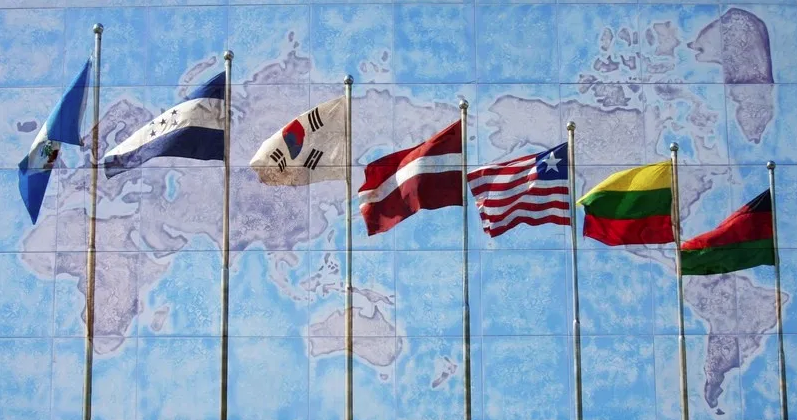Using Artificial Intelligence Art for the Environment: The Issue of Copyright and Beyond

ABSTRACT Regulating areas of artificial intelligence (AI) involves the collaboration of several actors. This includes machine learning technicians, artificial intelligence (AI) creators, artist users, regulatory developers, Courts, and Tribunals-. All contribute their expertise to the question explored in this article about the copyright of artists’ artificial intelligence(AI) products. The question arises as to who or […]
From Soft Law to Hard Choices: Healthcare AI Governance Across the USA and EU

ABSTRACT This paper explores the evolving regulatory landscape of artificial intelligence (AI) in healthcare, emphasizing the diverse approaches adopted by the United States and the European Union. It examines the historical reliance on soft-law frameworks and highlights the challenges of balancing innovation with accountability in this rapidly advancing sector. Focusing on key regulatory shifts under […]
Comparing Standard Processes for Designing M&E Frameworks with My Over 18 Years of International Development Experience in West Africa: Key Differences, Underlying Causes, and Impact on Program Success

Keywords: Monitoring and Evaluation (M&E), West Africa, Development Projects, Stakeholder Engagement, Program Theory, M&E Frameworks, Resource Constraints, Contextual Adaptability, and Capacity Building. ABSTRACT This paper compares standard processes for designing Monitoring and Evaluation (M&E) frameworks with the unique practical experiences gained from over 18 years of international development work in West Africa. The study aims […]
Using The Creative Arts for Resolution of Environmental and Climate Change Related Disputes

Using The Creative Arts for Resolution of Environmental and Climate Change-Related Disputes Important: to view this article with the images, please access the PDF at https://euclid.egnyte.com/dl/idOTVqqINb Author: Charalee Graydon Charalee Graydon – Assistant Professor, EUCLID Euclid University, Ph.D., JD, BCL (Oxon), LLB. Author: Suzanna Anstine Norbeck – JD. Ambassador, MBBI. Mediator & Mediator Trainer. […]
Announcing the End of Plastic Pollution: Towards a Global Treaty

Note: to view this article with its images/photos please access at https://euclid.egnyte.com/dl/ZeQt9jNOdc Authors: Charalee Graydon, Marta Arbab Charalee Graydon – Assistant Professor, EUCLID (Euclid University) Ph.D., J.D, BCL Marta Arbab, Ph.D. student, Faculty of Fine Arts, UCM. 1. Name and address of the corresponding authors: Charalee Graydon Email: [email protected] Marta Arbab Email: [email protected] […]
The Case for Privacy in Diplomatic Negotiations: Lessons from the 1787 Constitutional Convention, the 1993 Oslo Accords, and the 1998 Good Friday Accords

ABSTRACT Transparency has come to be the hallmark of liberal democratic government. Inspired by Woodrow Wilson’s “Fourteen Points” Speech, “open contracts, openly arrived at” is the gold standard of all democratic negotiations and deal-making at all levels of government. What if the opposite is true? Using three case studies – the 1787 Constitutional Convention, the […]
Challenges and Strategies for Improving Hemophilia Care in Refugee Settings: A Comprehensive Examination from Health Systems, Humanitarian, Legal, and Healthcare Innovation Perspectives

ABSTRACT This paper addresses the critical healthcare challenges faced by refugees, particularly the management of chronic conditions like hemophilia, in the context of displacement due to conflict, persecution, or natural disasters. The health trajectory of refugees often shifts from acute to chronic conditions as displacement extends, necessitating a shift in healthcare provision from emergency response […]
Strengthening Public Sector Health Systems For Global Progress. Are There Lessons To Be Learned From Rwanda?

ABSTRACT One challenge experienced by health systems globally is the management of complex and changing health needs in areas of constrained resources. Building and strengthening health systems can secure better health outcomes such as access, coverage, quality, and efficiency. It can be achieved through evidence-based reforms from countries that have been successful. Despite international funding […]
COP 28 – The First Global Stocktake – A Ray of Hope

ABSTRACT One of the key aspects of The Paris Agreement is to establish a method to evaluate the progress of collective efforts to meet the objectives of the Agreement to lower CO2 in the atmosphere, to mitigate and adapt to change occurring in the climate, and to set up finance systems to respond to climate […]
Law and Regulations for Deep-Sea Mining: Following the Guidance of the UN Convention on the Law of the Sea

ABSTRACT The United Nations Convention on the Law of the Sea (UNCLOS) sets the guidelines for the care of the world’s oceans. This article will review UNCLOS and how it shapes issues determining the scale on which the International Seaboard Authority (Authority) will or will not authorize deep-sea mining of resources in what has been […]
